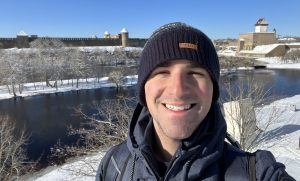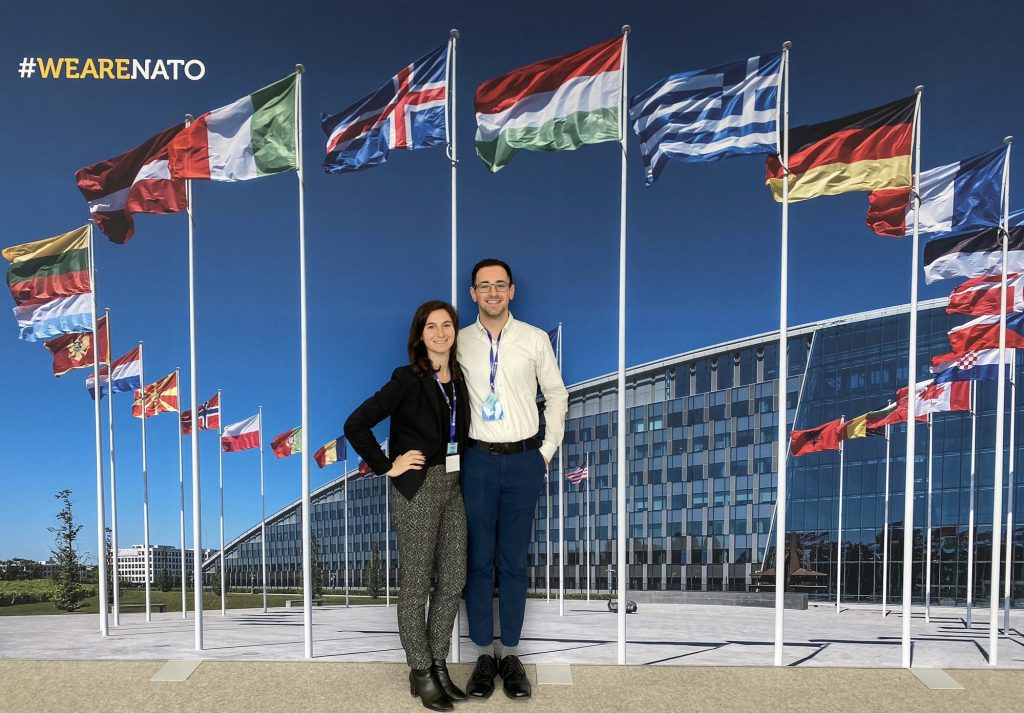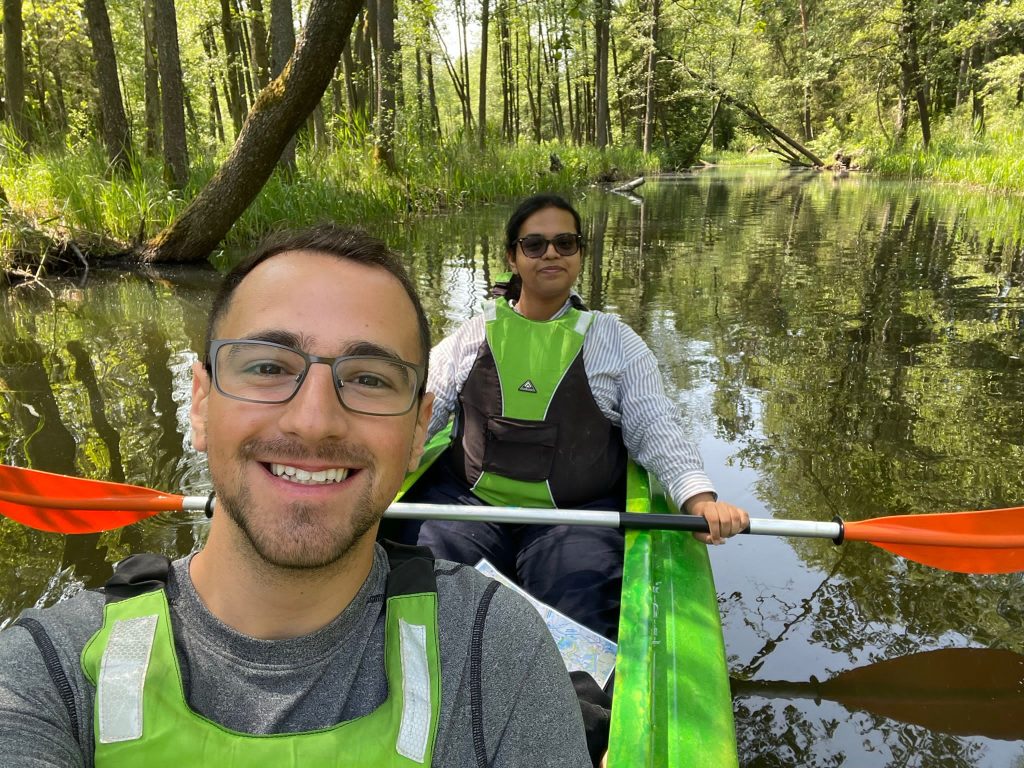 Daniel Breslow (SFS ‘22) is a Strategy Analyst at Deloitte Consulting, where he supports organizational transformation within a federal executive department. He graduated with a major concentration in International Law, Institutions and Ethics; minor in Russian; and certificate in Eurasian, Russian, and East European Studies (ERES). His undergraduate capstone research shed new light on the flowering of Yiddish literature, and minority cultural policy writ large, in the early Soviet Union. He is originally from Wyckoff, NJ, and now resides in Washington, DC.
Daniel Breslow (SFS ‘22) is a Strategy Analyst at Deloitte Consulting, where he supports organizational transformation within a federal executive department. He graduated with a major concentration in International Law, Institutions and Ethics; minor in Russian; and certificate in Eurasian, Russian, and East European Studies (ERES). His undergraduate capstone research shed new light on the flowering of Yiddish literature, and minority cultural policy writ large, in the early Soviet Union. He is originally from Wyckoff, NJ, and now resides in Washington, DC.
Last academic year, you were a Fulbright English Teaching Assistant (ETA) in Poland. What motivated you to apply to the Fulbright Program and how did you end up in Poland?
The Fulbright Program offered an attractive mix of opportunities: to spend a meaningful length of time in the region I’d studied in the classroom, to force myself out of my comfort zone, to develop transferable skills for the workforce and, quite honestly, to have a bit of an adventure before dedicating myself to a typical 9-5. I was originally an applicant to Fulbright Ukraine. After Russia’s full-scale invasion, that program [in Ukraine] suspended, the Polish-U.S. Fulbright Commission welcomed three of its prospective ETAs into Poland’s own cohort. I was offered placement at the University of Białystok, the principal public research university in northeastern Poland.
What can you tell us about this experience? What did you do as a Fulbright English Teaching Assistant in and outside the classroom?
I was dual assigned to the Faculty of Philology and the Faculty of Economics & Finance, which presented the opportunity (and challenge) of working with students of all abilities, personal interests and motivations for improving their English. Within the language department, I taught Academic Writing, American Studies and Practical English: Conversation to all levels of undergraduates. Within the economics department, I taught Beginning English for novice members of the administrative staff and led optional enrichment sections for motivated undergraduates and instructors.
The Polish-U.S. Fulbright Commission also sponsored me to participate in a week-long seminar which brought Fulbright grantees across Europe to Belgium and Luxembourg. Among a whirlwind of visits to U.S. diplomatic missions and the headquarters of European and transatlantic institutions, the highlight (for this International Law major) was sitting in on an urgent proceeding at the European Court of Justice. It remains to be seen the extent to which 2023 parliamentary elections will repair Poland’s strained relationship to Brussels.
What were the main challenges?
I was an English Teaching ‘Assistant’ in the loosest sense of the word. I developed all my own curricula, lesson plans and teaching materials as the sole instructor for each of my courses. The learning curve was enormous, but the communicative and interpersonal skills and senses of adaptability, creativity and overall confidence I have come away with are invaluable.

How did your ERES coursework shape your experience?
In Vilnius, Lithuania, I had the opportunity to visit the Lithuanian Special Archives, which preserves records of communist and socialist organizations dating from the nineteenth century through the collapse of the Soviet Union. I was able to consult personal files of primary subjects of my capstone research, and to contribute to historiography of the ephemeral Socialist Soviet Republic of Lithuania and Belorussia (1919–1920).
Among my most impactful courses at Georgetown was ‘Holocaust by Bullets,’ a product of forensic investigations into Einsatzgruppen execution sites dispersed across Eastern Europe. From Białystok, I also had the occasion to visit mass graves across Podlaskie Voivodeship, and to connect with local activists and fellow Fulbrighters working to promote remembrance and reconciliation. The province’s unique, painful experience within modern Poland of double occupation (by the U.S.S.R. in 1939–1941 and the Third Reich in 1941–1944) has produced a fascinatingly complex historical memory.
How has this experience impacted your life?
Nothing has made a greater impact than the people: my fellow ETAs with whom I traveled to all corners of Poland; neighbors who trusted me enough to brave conversing with a native English speaker; and students who showed openness to engaging in difficult conversations. The flip side of my independence as an instructor was having the flexibility to push boundaries my Polish colleagues would steer clear of: on religion in public life, criminal justice, immigration, civic participation, etc. For some students it was jarring; for many—it was liberating to be encouraged to articulate themselves in my ‘American’ classroom. To the same extent as I was there to lecture, the Fulbright Program intended for me to listen, and I feel a much greater understanding of Poles and Poland for their participation.

What advice would you give your fellow students who want to apply to the program?
Just do it! I went into the program—to a completely different country than I had intended—with plenty of doubts about my ability to thrive in a foreign environment and to succeed as a college educator. Looking back on it, Fulbright has been the most important year of my life, and I am excited to remain actively engaged as an alumnus.